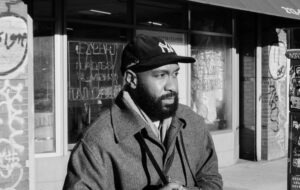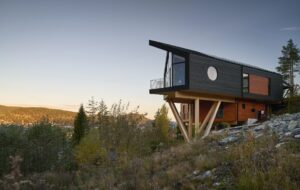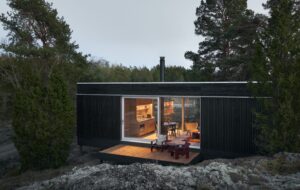|
|
||
|
The co-founder of Second Home speaks to Debika Ray as he launches a new space in Lisbon As policy adviser to former UK prime minister David Cameron, Rohan Silva was credited for luring Google to London’s Shoreditch, as part of an effort to build a rival to Silicon Valley in the capital. Having enjoyed a broad remit within government, working on everything from access to public data to its design award-winning Gov.uk website, he left in 2013. He has since focused his energies on Second Home, a flexible workspace aimed at creative entrepreneurs, set up with business partner Sam Aldenton. An east London hipster magnet, it has expanded to include a bookshop across the street and, as of December, a second workspace in Lisbon – with two more, a workspace-cum-crèche aimed at workers with young children, and one for older entrepreneurs, opening in London later this year. ICON Why Lisbon? ROHAN SILVA As with all creative projects, it’s been a mix of the heart and the head. The heart bit was coming here a few years ago and falling in love with the city and its sense of freedom – the fact you can stay out all night, which has become difficult in London, where 40 per cent of live music venues have closed over the past ten years. The head bit was that I felt there was an opportunity for another city in Europe to emerge as a creative centre, because London has become so expensive. I felt Lisbon might be that place and that Second Home might be a catalyst in it building a creative economy. We’re also trying to show that there’s more to the world than London, New York and Beijing. It’s important that there’s more than a handful of urban centres in the world, which, in turn, will reduce pressure on cities like London. ICON How is the Lisbon space different to the one in London? RS The mission is the same: to support creativity and entrepreneurship using the built environment. We’ve worked with the same architects, SelgasCano, and applied the same principles, for example, biophilia – hence the plants and natural light – and creating spaces in which people can see one another and collide, but also have a sense of privacy. But it’s ended up looking quite different because in London we occupied a derelict 1960s carpet factory and in Lisbon we’re in a 19th-century fruit and vegetable market. We wanted to try and respect the original building here, which has led to quite a different set of materials and interventions.
Second Home Lisbon is housed in a 19th-century market building ICON You reject the term ‘co-working space’ to describe Second Home. Why? RS With a co-working space, anyone who pays can work there. Second Home, however, is trying to be an incubator for creativity. We think creativity is most likely to happen when different industries, disciplines, types of people and companies of different sizes bump into each other. At the moment, design people tend to hang out with designers, finance with finance, tech with tech – actually, so much innovation comes at the intersect of those fields. At Second Home, we curate the mix and stir the pot. Spatial geography matters, but so does the composition of the community and things like cultural programming, which expose people to new ideas. Having that within a single environment accelerates the collisions that spark new ideas and, most importantly, jobs. Jobs that involve creativity are less vulnerable to automation, as technology replaces even white-collar positions, so helping people unlock their creativity is important. ICON Europe in general – and Portugal in particular – has struggled with high youth unemployment since the financial crisis. In that context, might we see initiatives such as Second Home as emblematic of increasing job insecurity? RS I have called for government to give more rights to self-employed people because that has to be looked at. But this explosion in microbusinesses and self-employment is a real shift – big companies are shrinking their workforces because of technology and the cost of starting a business has come down. We are trying to help people flourish in this brave new world. That means creating environments that are more communal, so even if you’re working by yourself, you’re around other people. It also means environments in which it’s easier to get advice and find partnerships – in the form of investors, accountants, lawyers and designers. Today, six per cent of small businesses in developed countries generate more than 60 per cent of new jobs. We’re trying to help more of them fall into that category. The trends we’re responding to will define generations to come. The future can be a scary, unsustainable, unhappy place with much too much inequality and unemployment, or it can be something sustainable, healthy, creative and fair.
Second Home London – a space where ‘people can see each other and collide’ ICON In London you’re located in what was recently one of the poorest areas in the country and is now experiencing rapid gentrification. Is there a danger with projects like these of creating bubbles of a particular lifestyle and ideology, segregated from the wider context? RS We’re very critical of buildings where you don’t get to see what’s inside unless you’re invited in. That’s an antisocial type of architecture – it’s bad for our streets and society. We’re trying to take a stand against that: everything we do at Second Home is open to the public – our cultural programme, events, restaurant, bookshop, education programme – and we employ local young people from Hackney Community College. Our pricing is also set low enough so different groups can afford it and some – charities, community groups – use space for free. We genuinely think creativity happens when different types of people bump into each other. That’s also why we are just off Brick Lane – a point in London where, for 400 years, different types of people have come together and new things have emerged as a result. ICON You’re looking to venture into the housing sector. What would that entail? RS Architecture often erodes communities, rather than fostering them. We’re trying to redress that in the working environment and we’d like to do so in the living environment too. That would mean two things: first, ensuring you have a diversity of ages, demographics and backgrounds within developments, not just flats sold to the highest bidder; second, creating common social spaces such as screening rooms, libraries and community spaces, which are programmed so they’re full of life. To do these things, you’ve got to be a social enterprise because if you’re trying to maximise profit, it doesn’t happen. Unfortunately, the planning system makes it next to impossible to build housing at scale in London unless you’re a volume housebuilder. London is facing an existential crisis unless it gets to grips with the housing issue – the gap between the number of homes we need and how many we’re building is killing our city.
Libreria, Second Home’s London bookshop and ‘interdisciplinary cultural hub’ ICON Another major challenge facing London is Brexit – how do you see us coping? RS It’s a challenging time for the creative industries because the sectors that shout the loudest are at the front of the queue when it comes to trade and immigration. If we’re not careful, the creative industries are going to get overlooked. I campaigned for Britain to remain in the EU, but I think we can thrive in the global economy – we’ve just got to work hard to do so. The biggest risk is if it becomes harder for creative, talented people from around the world to start companies and create jobs in the UK. One of the ways we could address this is with a more regional approach to immigration – Canada, for example, issues visas that give you the right to work in a particular region. A group of us at the London School of Economics have been making the case that we should give cities the power to create visas particular to their area. Certain regions like London and Manchester would want that power, and other places, where people are more sceptical of immigration, wouldn’t need to have so much of it. ICON You wrote shortly after the Brexit vote that the government should slash corporation tax – which chimes with its hint that Britain may need to ‘change its economic model’ if it can’t secure an acceptable trade deal with the EU. Doesn’t this proposal run counter to the argument that the pro-Brexit vote was driven in part by inequality? RS Lots of people are interpreting Brexit to reinforce their own prejudices. There’s no evidence that Brexit was a vote against inequality – actually, a lot of the wealthiest parts of the country voted for it. My point was that it’s important for Britain to send a signal to the world that Brexit doesn’t mean the country is turning in on itself. We have a generous tax credits system for the film and television industry, to attract jobs and investment. It feels hypocritical to say that shouldn’t apply to other industries. The truth is if you want to attract investment, you’ve got to make sure the tax system is competitive – which is going to be more important after Britain leaves the EU, because we will have to be competitive with the rest of the world. |
Words Debika Ray
Portrait Emilie Gouband |
|
|
||



















